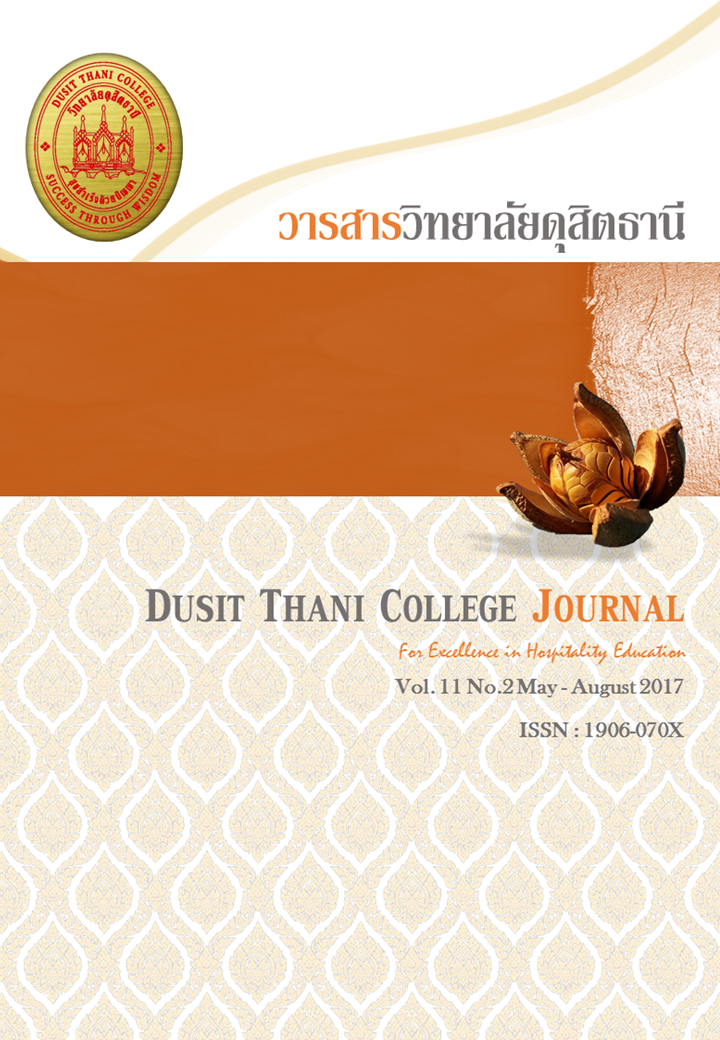Analysis Approach of Higher Education Governance from the Perspective of Socio-Cultural Agency Theory
Main Article Content
Abstract
This paper proposes how to apply socio-cultural agency theory as a conceptual framework for analyzing higher education governance. The main theme is to identify: (1) the negligence of socio-cultural agency theory for investigating higher education governance and (2) how to apply socio-cultural agency theory for analyzing higher education governance.
In summary, this paper highlights that the effectiveness and efficiency of higher education policies and their instruments require an in-depth understanding of context-underpinning factors embedded in different settings through two aspects: (1) ecosystem affecting the governance such as relationships and organizational cultures embedded in the system, and strengths and weaknesses of the system affecting the governance and (2) stakeholders’ perceptions towards relationships, organizational culture and system and governance policies and their instruments
Article Details
Article Screening Policy
- All research and academic articles to be published must be considered and screened by three peer reviews in the relevant field / article.
- All articles, texts, illustrations and tables published in the journal are the personal opinions of the authors. Editors don't always have to agree. And no responsibility whatsoever is the sole responsibility of the author.
- The articles to be published must never be published. Where did you first publish? And not in the consideration of other journals If the audit found that there has been a duplicate publication It is the sole responsibility of the author.
- Any article that the reader sees as being plagiarized or impersonated without reference. Or mislead the work of the author Please let the journal editor know it will be your greatest blessing.
References
Ahmad, A. R., Farley, A. and Naidoo, M. (2012). “The study of government-university relationship in malaysian higher education system.” International Education Studies. 5, 5 (October 2012): 25-34.
Clark, B. R. (1983). The higher education system: academic organization in cross-national perspective. Berkeley: University of California Press.
Crosby, L. A. and Stephens, N. (1987). “Effects of relationship marketing on satisfaction, retention, and prices in the life insurance industry” Journal of marketing research. 24, 4 (November 1987): 404-411.
Fukuyama, F. (1995). Trust: The social virtues and the creation of prosperity. New York: Free Press Paperbacks.
Fukuyama, F. (2000). “Social capital and civil society” International Monetary Fund (IMF), Working Paper, WP/00/74, (2000): 1-18.
Gornitzka, A., Stensaker, B., Smeby, J-C. and de Boer, H. D. (2004). “Contract arrangements in the Nordic countries. Solving the efficiency/effectiveness dilemma?” Higher Education in Europe. 29, 1 (April 2004): 87-101.
Granovetter, M. (1985). “Economic action and social structure: The problem of embeddedness.” American journal of sociology. 91, 3 (November 1985): 481-510.
Hazelkorn, E. (2004). “Growing research: challenges for late developers and newcomers.” Higher Education Management and Policy. 16, 1 (April 2004): 119-140.
Johnson, N. B. and Droege, S. (2004). “Reflections on the generalization of agency theory: Cross-cultural considerations.” Human Resource Management Review. 14, 3 (September 2004): 325-335.
Kiser, E. and Cai, Y. (2003). “War and bureaucratization in Qin China: Exploring and anomalous case.” American Sociological Review. 68, 4 (August 2003): 511-539.
Kivisto, J. A. (2007). Agency theory as a framework for the government-university relationship. Ph.D. Dissertation. Higher Education Group: Tampere University Press.
Horta, H., Veloso, F. M., & Grediaga, R. (2010). Navel gazing: Academic inbreeding and scientific productivity. Management Science,56, 3 (March 2010): 414-429.
OECD. (2003). Education policy analysis. OECD: OECD Publications.
Rothstein, B. and Stolle, D. (2003). “Introduction: Social capital in Scandinavia.” Scandinavian Political Studies. 26, 1 (March 2003): 1-26.
Rungfamai, K. (2008). Higher education and institutional-autonomy policy in Thailand: The perspective of agency theory. Master’s thesis. University of Tampere.
Rungfamai, K. (2011). Research universities in Thailand: Challenges to governance. PhD. dissertation. The University of Hong Kong.
Rungfamai, K. (2006) “Governance of National Research University in Southeast Asia: the case of Chiang Mai University in Thailand.” Studies in Higher Education. DOI: 10.1080/03075079.2016.1250072
Rungfamai, K. (2017). “Research-university governance in Thailand: the case of Chulalongkorn University.” Higher Education. 74, 1 (July 2017). 1-16.
Salmi, J. (2009). The challenges of establishing world-class universities. Washington: The World Bank.
Shapiro, S. P. (2005). “Agency theory.” Annual Review Sociology. 31 (January 2005): 263-284.
Uzzi, B. (1996). “The sources and consequences of embeddedness for the economic performance of organizations: The network effect.” American Sociological Review. 61, 4 (August 1996): 674-698.


